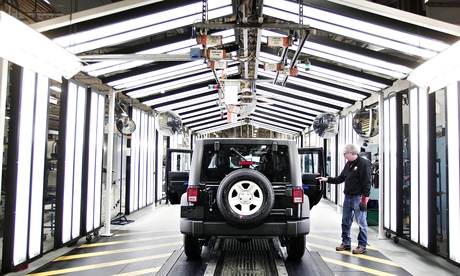The opportunities created by new technology have no intrinsic ethical bias. The first printing presses spread lies as quickly as truth. Mankind’s harnessing of nuclear energy gave us power stations and bombs. So it is hardly surprising that offences committed online are swelling reported crime statistics. The Office for National Statistics expects the overall rate for England and Wales to have doubled since 2015, chiefly because cybercrime turns out to be more prevalent than had previously been thought, with 5.8m incidences in the past year.
The shift does not indicate a sudden slide into turpitude. Without online offences, crime is stable, or falling slightly, continuing the pattern of recent years. One theory holds that the uptick in technological malfeasance represents a migration away from analogue crime – that remotely hacking into a bank account is safer than robbing one at gunpoint.
But the relative invisibility of cybercrime must not diminish awareness of the cost. The majority of offences – about 3.8m – involve fraud and scams; the remainder constitute computer “misuse”, such as the spread of malicious software. These are not victimless crimes, as anyone whose business has suffered or who has had their identity poached online will attest. Trauma can be caused without physical coercion.
That aspect of digital wrongdoing is all the more apparent in crimes that are not recorded as computer-related but nonetheless a function of technological change. Of a 27% increase in reported offences against the person, and a 21% increase in sexual offences, about half involved no physical injury. This may reflect, in part at least, greater awareness of crimes such as the publication of “revenge porn”, online abuse and harassment. The statistics do not tell us whether more offences are actually being committed or a higher proportion are being reported, or both.
It does, however, seem clear that opening up new digital frontiers creates space where behaviour that should be obviously intolerable achieves a sinister normality – ranging from non-criminal rudeness to the dissemination of vicious racism, misogynistic bullying and politically motivated incitement to violence. Technology companies are squeamish about taking responsibility for policing their digital patches. They do not want to admit liability. But it is hard for governments to fulfil their policing duties without more active cooperation from the private sector. Controversy surrounding Twitter’s decision to ban Milo Yiannopoulos – a notorious stirrer of cyber-hatred – indicates how low in the foothills of this debate we are. Every cheer of relief at a protection for civilised discourse was matched by a cry of outrage from ultra-libertarians who cannot see the difference between enforcement by a private company of rules against bad behaviour and totalitarian censorship.
With every passing year it gets harder to identify any conceptual difference between offences in the digital and analogue realms. A generation is coming of age for whom the two spheres are not as separate as they might have felt in the first stages of the internet age. That shift generates all manner of technical challenges in terms of catching criminals and enforcing decent behaviour, but it also helps clarify an underlying moral principle. Digital abuse is abuse; cybercrime is crime. The medium may offer new opportunities to commit offences, but it is never an excuse.











